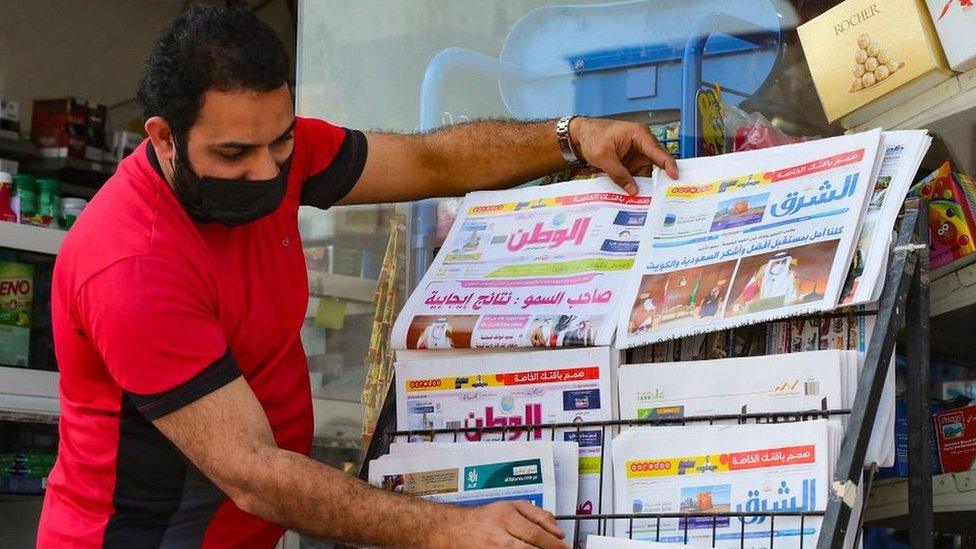Qatar media guide
- Published
This page is no longer being updated. It was last updated on 20 February 2023

Qatar invests heavily in its media sector, notably its flagship broadcaster Al Jazeera, a tool of regional influence.
Most media outlets are owned by the state, members of the royal family or figures aligned with them.
Most outlets take a pro-government stance. Journalists practise self-censorship, avoiding critical reporting on domestic and foreign affairs. The absence of opposition media has left social media as the only space for expressing discontent.
Many outlets are sympathetic to Islamist groups, whose figures maintain a significant media presence.
A dispute that broke out between Qatar and its Arab neighbours in 2017 sparked a propaganda war, which has dissipated since the signing of a January 2021 agreement to restore ties.
BBC World Service radio in Arabic, France's Arabic-language Monte Carlo Doualiya and Radio Sawa from the US broadcast on FM in Doha.
Qatar has one of the highest penetrations of social media in the world. YouTube and Facebook are the most popular platforms. There were 3.1 million internet users by July 2022, with registered users comprising more than 100% of the population (Internetworldstats.com).
Press
Al-Watan (The Homeland), external - privately-owned, pro-government daily
Al-Rayah (The Banner), external - privately-owned, pro-government daily
Al-Sharq (The East), external - privately-owned, pro-government daily
Al-Arab, external - privately-owned, pro-government daily
Gulf Times, external - English-language, sister paper of Al-Rayah
The Peninsula, external - English-language, sister paper of Al-Sharq
Qatar Tribune, external - English-language, sister paper of Al-Watan
Television
Al-Jazeera, external - influential pan-Arab and international satellite broadcaster, financed by the Qatar government
Qatar TV, external - state-run; operates main Arabic service, Koran channel, English channel, satellite channel
Al-Araby TV, external - London-based channel owned by the privately-owned Fadaat Media Group, it is largely aligned with the Qatari government.
Al-Hiwar TV, external - London-based channel founded by Palestinian intellectual Azzam al-Tamimi, said to be funded by Qatar
Radio
Qatar Media Corporation (QMC), external - state-run, programming in Arabic, English, French, Urdu
News agency/internet
Qatar News Agency, external - state-run, in English
Qatar Day, external - portal, in English